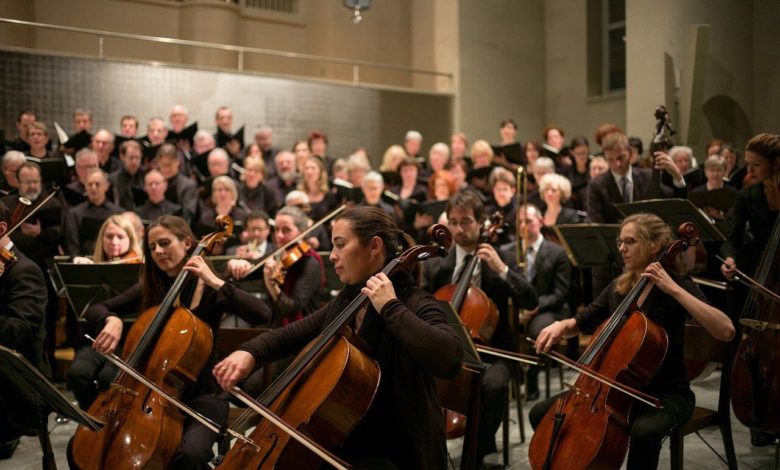After a Humble Maestro

Mariss Jansons, who almost everyone defined as “a great artist, a beautiful person” in the music world, said goodbye to the world late last year. Jansons, who has conducted the biggest orchestras throughout his bright career, has been weakened by his heart disease for years and had to decrease his activities since 2014.
Mariss Jansons was born in a wrecked place in the last days of the Battle of Stalingrad on 14 January 1943 in Riga, which is the capital of Latvia under the Soviet Union. He was the son of the conductor Arvīds Jansons. Arvīds Jansons had been the assistant of the famous chef Yevgeny Mravinski since 1952. Jansons grew up under the roof of Riga Opera, where his father also worked as a violinist. He started his musical education with violin and viola and continued in the Leningrad Conservatory, where he was accepted in 1956, with the violin, piano and conductorship.
He continued his education in Austria after the conservatory. He worked with Hans Svarovski who is also Claudio Abbado and Lorin Maazel’s guide in Vienna and in Salzburg with Karajan. After winning an award at the Herbert von Karajan Conductorship Competition in 1971, Mravinski, the permanent conductor of the Leningrad Symphony, took him as his deputy.
Jansons had acquired a very balanced repertoire between Austrian and German masters and great Russian symphony masters, by developing a style that has nothing to do with Karajan and Mravinski’s strong, ‘athletic’ style of conducting from the Russian tradition. Throughout his professional life, he would be an orchestra conductor, far from excessive, inconsistent and confused.
International career:
Jansons’ career began in 1979 when he became the music director of Oslo Philharmonic. As a true creator, he brought the orchestra to international levels. Between 1979 and 2000, he was not only the permanent chief of the Oslo Philharmonic, but also the guest chief of the London Philharmonic (1992-1997) and the Music Director of the Pittsburgh Symphony Orchestra (1997-2004). But frequent travels between the USA and Europe affected his health, he needed to quit working at the Pittsburgh Symphony in 2004. However, he never left the Concertgebouw Orchestra (2004-2015), which he undertook in the same year, and the Bavarian Radio Symphony (2003-2019), which he had directed since 2003. While he was constantly working with these two orchestras, he continued to perform regularly with the Philharmonic orchestra of London, Berlin and Vienna. Until he fell weak in 2014 and accepted that he had to work at a slower pace. Although he said goodbye to Amsterdam Concertgebouw in the 2014/2015 season, he did not terminate his contract with Bavaria, his contract would expire in 2024.
Health problems kept Jansons too busy in the second half of his life. He had to cancel several concerts in 1996 in Oslo, due to a heart attack in a La Bohème representation. Jansons’ father also died of a heart attack in a 1984 concert in England.
Numerous concerts, recordings and awards:
Jansons’s huge number of CD and DVD recordings remained a rich heritage for music lovers and his fans. His recordings are proof of how wide his repertoire is. He recorded most of his beloved Shostakovich symphony with various orchestras and completed it with the Bavarian Radio Symphony.
Jansons, a great commentator of the Russian repertoire, had a special love for Shostakovich, stated: “Performing Shostakovich’s music has always been enjoyable. I want all orchestras in the world to play his works until he is considered one of the biggest and most popular composers, because he deserves it. He’s a genius.” He also loved Prokofiev, directed his 5th Symphony many times and made multiple recordings. Apart from the Russian repertoire, he also showed that he was a successful interpreter of the composer of the giant works, Mahler. In 2001 he directed the symphonies 1, 3, 7, 9 of the Oslo Philharmonic, and the CD includes symphonies 1 and 9, win the Toblach Award in 2003.
Jansons, who was one of the conductors chosen by the Vienna Philharmonic members for the New Year Concert, was invited to manage the orchestra on this special day in 2012 and 2016 as a result of his success in 2006.
Jansons was also honored with the special awards of many countries; He received high-grade medals from Austria, France, Germany, Norway and other countries. Most recently, he was awarded the Herbert von Karajan Award at the 2019 Salzburg Easter Festival.
A special person, a special musician:
The great chief could give more beautiful things but he left the world at the 30th of November because of a heart failure.
In the messages published after his death, Jansons’ humility, charisma on stage, honesty as a human and artist were praised. Almost all of the words used were filled with respect and sincere love. The current conductor of the Bavarian Radio Symphony, which he had been conducted for years, has described Jansons as “an exceptional personality with his humanist approach to musicians and his attentive sensitivity, determination and diligence.” Jansons, was a conductor with a special ability to push musicians to a natural and emotional approach and go beyond theirselves. He was a real musician that allowed the orchestras he conducted to shine brightly but whisper and whimper in place. The impression of musicians who have worked with him and those who have followed him closely for years can be summarized in a few words: humility, good courage, humility, not the star of the podiums, but the great servant of music.





